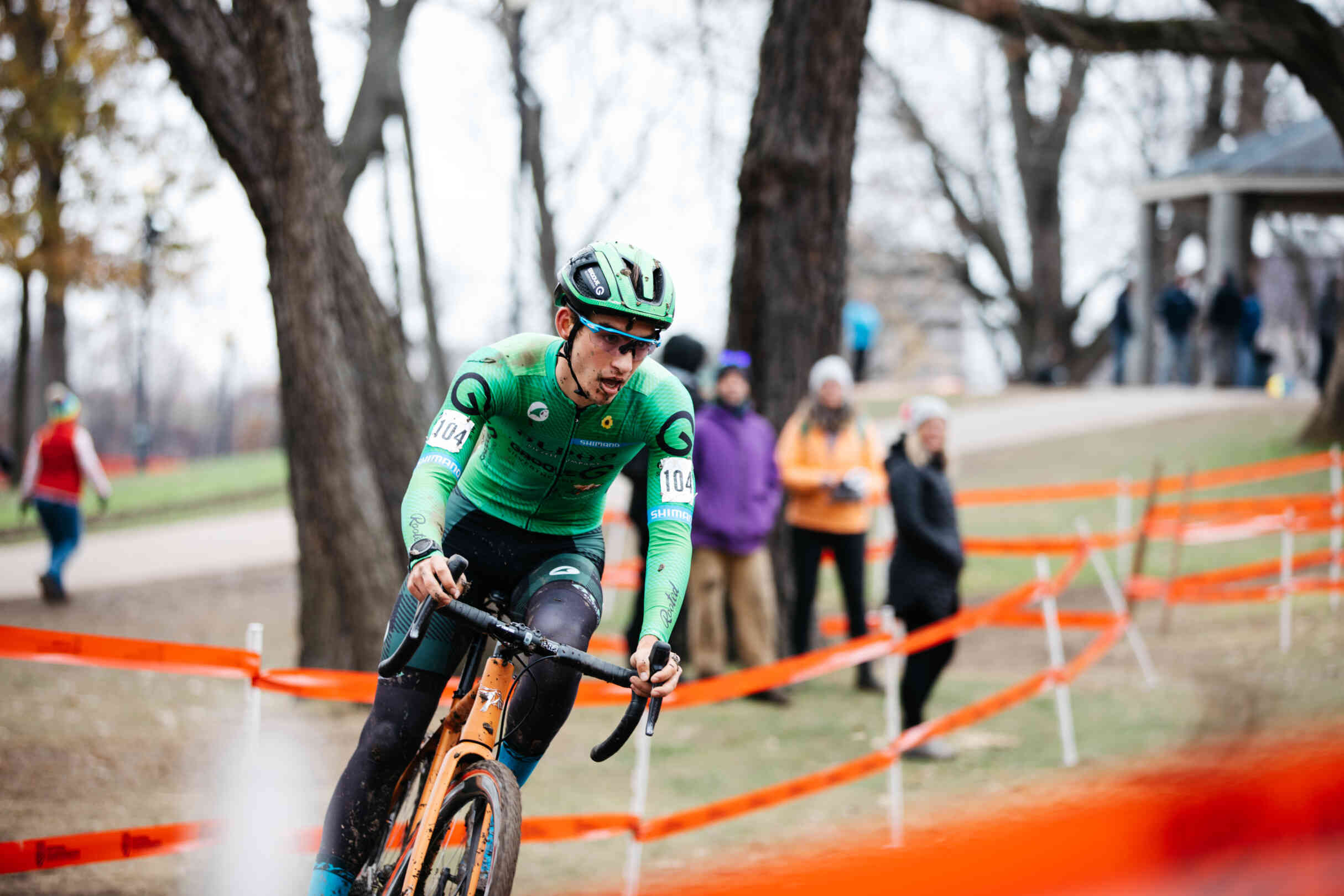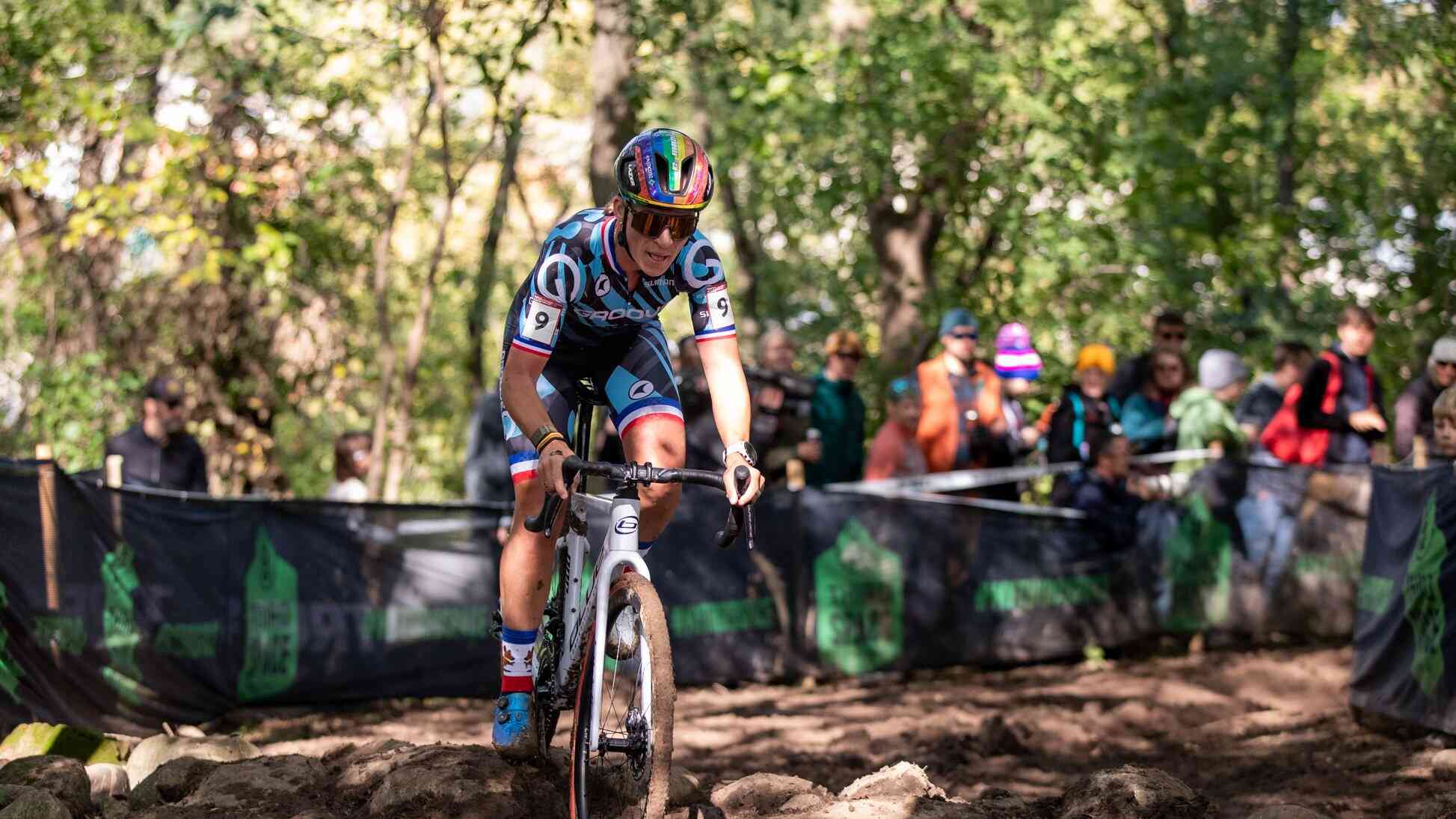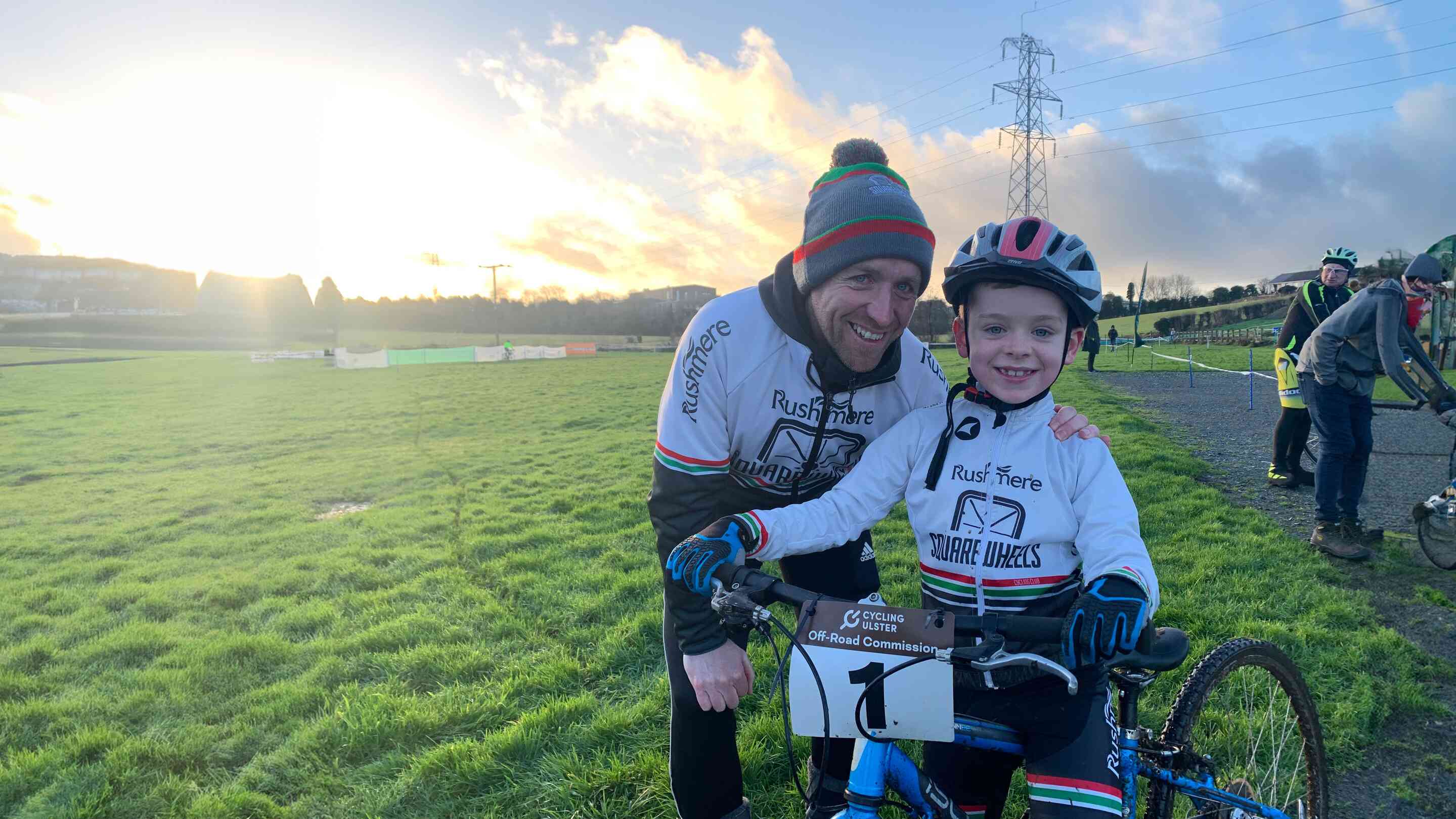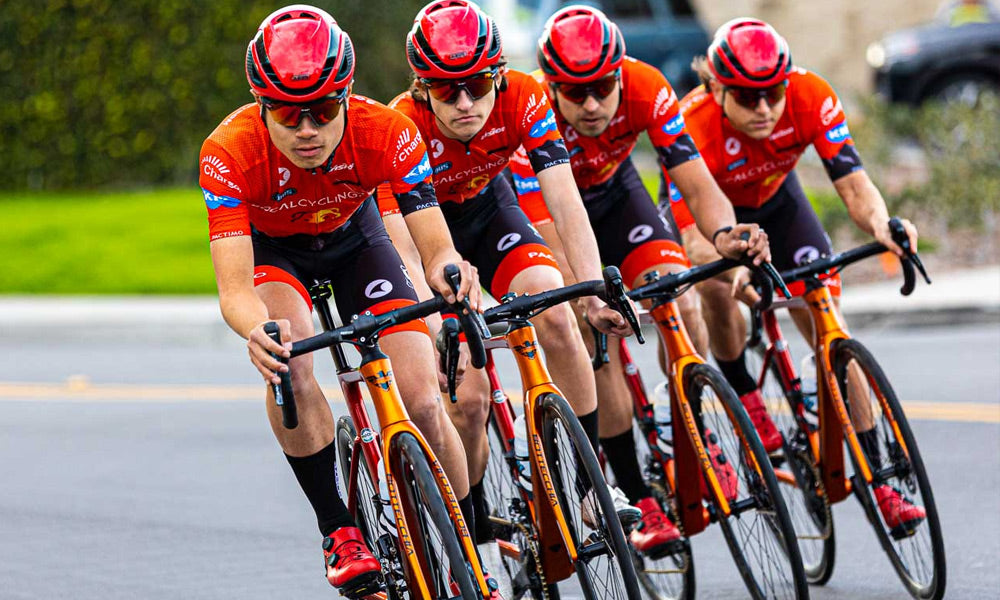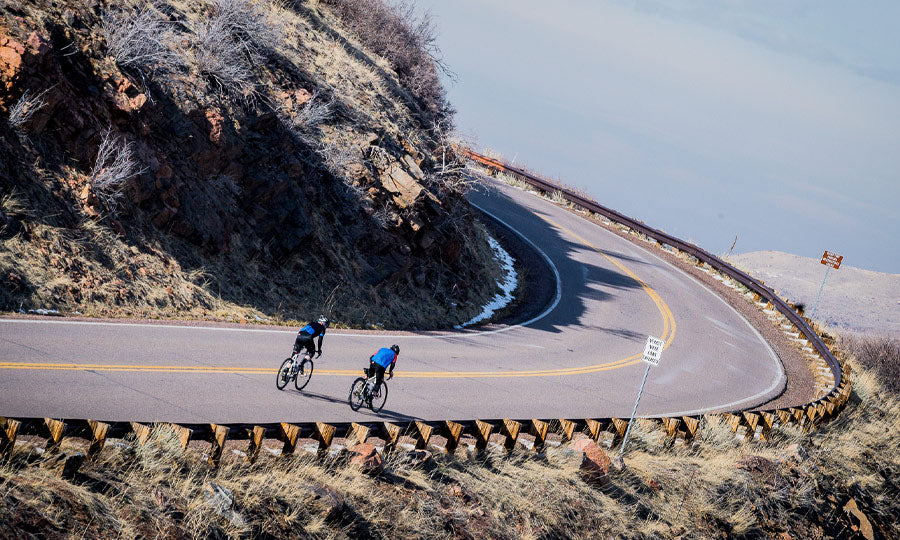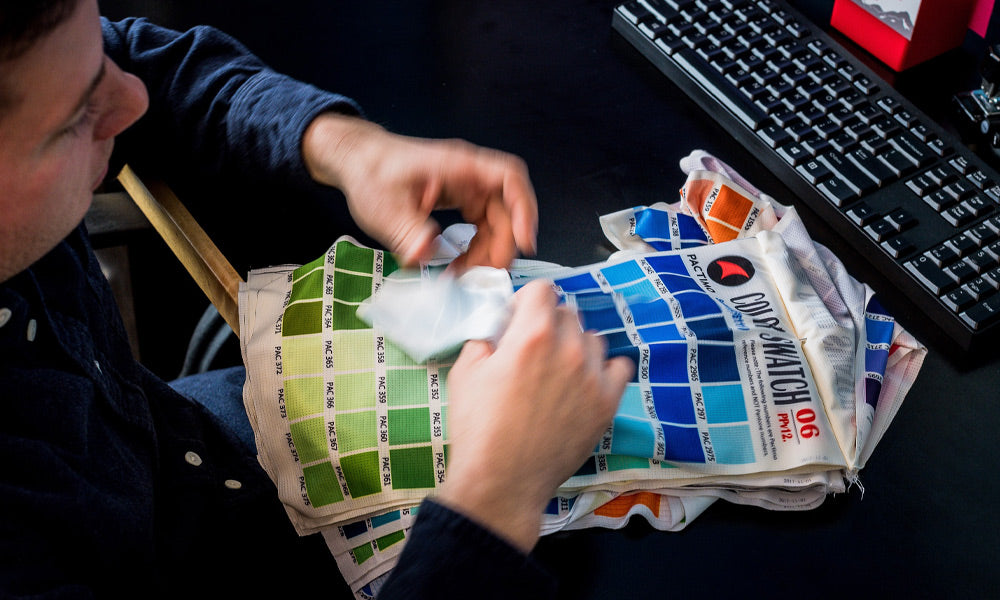13 Things With Georgia Gould
Continuing our "Things With" series with the Georgia Gould.
We talk with Georgia Gould, former pro mountain biker, Olympic bronze medalist, and advocate for gender equality who is now an integral cog in the logistical machine that runs Rally Cycling.
There's always a lot more going on behind the scenes than you realize. My role has given me a new appreciation for all the people that make a team function smoothly, all the different things that have to be kept in mind. I was lucky during my career to have a team manager who booked all our travel and hotels, and it’s cool to see it from the other side.
Winning bronze at the 2012 Olympics was a high point in my career. There’s so much that has to line up. There are so many different factors that go into having a great race on any given day, and the Olympics only comes around once every four years, so to be able to put it all together on that day was really satisfying. And it’s a result that’s understandable to the average person who doesn’t even care about cycling.

Gould claiming Olympic Bronze for Team USA.
Nothing really changed after the Olympics. A lot of people don’t know that cycling and mountain biking are Olympic sports. I think if I’d won bronze on day one, it might have been ‘the first medal for the US’ and I’d have been on all the shows, but because I raced on the second to last day, it was just another bronze. It didn’t even get me free entry to a club that night – the lady at the door was just like, ‘I don’t care, it’s the end of the Olympics, I’ve seen a million gold ones!’
An Olympic medal of any color has the power to inspire. I’ve finished third place in a lot of races that no one cares about, but Olympic bronze is different. I did a few events in schools after the Games and I would pass my medal around. Some kids are like ‘whatever’, but in other kids, you see just a little glimmer and they think ‘I wonder if I could do that?’ Having that as a sort of bridge to inspiring young people has been the cool thing about that result.
I have two young kids. A three-year-old and an almost five-month-old. I don’t have any kind of agenda for them, I could care less if they make it to the highest level. My husband too – he’s also an athlete, although he’s never raced professionally. I just hope that our kids can enjoy all the things that drew me to the sport before I started competing, learning how to appreciate it as part of a healthy lifestyle, and to challenge yourself.
I was already 'old' when I went pro. I think my first year with a professional license I was 23 or 24. It didn’t seem that late to me, but people kept telling me I’d started very late.

Gould competed for the Luna Pro Team from 2006-2016, where she won the USA XC Mountain Bike National Championships four times.
A lot of people don't realize how big the pay disparity is. The first time it was clear to me was at the podium ceremony of a cyclocross race. I was standing there with the winner of the men’s race and he said, ‘Pretty awesome payday, huh?’ It turned out he’d got $2500 and I got $250. Are you kidding me? So, I started an online petition. There wasn’t really any change in the rules to begin with, but a lot of US promoters voluntarily made their prize money equal. Just bringing attention to it caused people to change their thinking.
I was the only woman on a committee with eight Belgian guys. I’d sent copies of the petition with all the signatures to each of the different UCI committees. By the time I got onto the MTB committee, I felt able to bring up equal prize money. I expected some push back from those guys, but they were all just like, ‘yeah, okay.’ It was that easy.
I hope MTB can be the benchmark. When it got started, it was a case of, ‘of course we’re having a women’s race too’. It was the 1990s so not that long ago. If you look at CX, they didn’t even have a women’s World Championship until the 2000s. Then they made a rule that if you’re putting on a C1 event, you have to have a women’s race. There was a lot of push back at first. But then promoters started to realize that fans wanted to see those races.
It helps that MTB is a young discipline. When it got started, it was a case of, ‘of course we’re having a women’s race too’. It was the 1990s so not that long ago. If you look at CX, they didn’t even have a women’s World Championship until the 2000s. Then they made a rule that if you’re putting on a C1 event, you have to have a women’s race. There was a lot of push back at first. But then promoters started to realize that fans wanted to see those races.
I’m interested in mentoring and helping new riders. A lot of people start really young, way younger than I was. It’s an advantage in some ways, but it’s difficult when you’ve been involved at such a high level from such a young age. Once you get to the elite level, you might have been racing for ten years already, but it’s like you’ve got to start all over again. It takes a lot of focus and I think having people who can rein in younger riders, or help provide some perspective, can be useful. But I’m just some lady with two small kids who is not getting enough sleep…
You never know what you’re capable of until you try. I wasn’t an athlete growing up, I wasn’t on varsity teams or anything, so people were surprised when they found out I went to the Olympics. But I got to a point where I was racing for fun and I wondered what would happen if I really tried. I didn’t want to be old and talking to my grand-kids and still wondering. So, I say go for it. Even if it’s not what you expected, I think there’s always something to be learned along the way, regardless of how it turns out.
You can visit the full collection of "Things With" interviews here.
READ THE ORIGINAL STORY ON RALLY CYCLING NEWS

